

The Republic of Ireland and Poland teams had lined up for the anthems before a World Cup qualifier at Lansdowne Road in the Seventies, the hosts reinforced by the sudden conversion of one Terry Mancini.
“Cor blimey guv, this bleeding Polish anthem ain’t half going on a bit,’’ the new cap says out of the corner of his mouth to the Ireland manager, Johnny Giles, standing next to him.
“Shut up,’’ Giles tells him. “It’s ours….’’
Ho ho, what a jape, what a farce. Four decades on and the joke has been on the other foot, so to speak, for so long that it isn’t funny anymore.
As a sport, Rugby Union has allowed the nationality issue to be twisted into levels of absurdity far greater than the simple matter of an English footballer not recognising Amhran na bhFiann when it ought to have been music to his ears.
Mancini qualified through an Irish parent which gave him every right to wear the green. Shane Howarth and Brett Sinkinson, a pair of New Zealanders whom Wales passed off as Welsh by ancestry, wore the three-feathered red into more than 40 matches between them when they had no right to have worn it all.
When they were exposed and the game held up to public ridicule, those running it in Wales and everywhere else pleaded ignorance. Instead of asking for some documentary proof, they took the players at their word, as did World Rugby, and were taken for a ride.
Their continuing failure to grasp the nettles of Regulation 8 and the eligibility rules therein is still causing embarrassment on an international scale. No sooner had France called David Smith into their squad the other day than they had sent him away.
It all happened so quickly that the revolving doors at their hotel outside Paris were possibly still revolving when he walked back out. The French administrators had presumably read Regulation 8, unlike their Welsh counterparts almost 20 years earlier.
After five years in France, Smith fitted the criteria for qualification through residence. It appears not to have occurred to anyone at the French Federation that the Samoan had played once for New Zealand at a Sevens tournament eight years ago until Smith volunteered the information.
Dion O’Cuinneagain, a South African, captained his country’s national Sevens team in 1995 and won his cap three years later, for Ireland. Jason Jones-Hughes played for the Australian Barbarians and when the Wallabies rightly kicked up an almighty fuss after Wales shamelessly poached him for the 1999 World Cup, World Rugby, then known as the IRB, ruled in favour of Wales.
Steve Devine represented Australia at U21 level but that didn’t prevent him from playing ten Tests for the All Blacks, starting against England at Twickenham in 2002. Brad Barritt was an Emerging Springbok in his native South Africa before submerging and resurfacing in the England midfield.
In 2004, the Fijians Sitiveni Sivivatu and Sione Lauaki played for the Pacific Islands in official Test matches against Australia, South Africa and New Zealand. The following year they transferred seamlessly into the All Blacks as if the eligibility laws had never been written.
None of this will make David Smith feel any better. Others could change allegiance without a by-your-leave but the Castres wing, highest try-scorer in the Top 14 last season with Toulon, is made to pay for a fleeting appearance for New Zealand in a sawn-off form of the game.
The law now decrees that anyone playing Sevens for one country cannot play the proper form of the game for another except that the law contradicts itself. Regulation 8, section 7, sub-section 2 proves beyond any doubt that, in this instance, it is an ass.
Referring to eligibility for the Sevens at this year’s Olympiad in Rio, its ruling entitles someone like Smith, who is married to a French woman, to represent France provided he is a French national. Then it states:
“Once the player has represented the Union of which he is a national, in an Olympic event, he shall thereafter be tied to that Union for all forms of the game and in all events.’’
So if Smith obtains a French passport and a place in their Olympic Sevens squad, he will be eligible to play for France in the Six Nations next year but not this year. His one outing for the All Black Sevens will count for nothing, as if it never happened.
Unfortunately for Smith, he seems destined to be lumbered with the record for the shortest membership of a Six Nations squad, so short it can be gauged in hours, if indeed it lasted that long. France are unlikely to be hit by so many injured wings again and, at 29, Smith does not have time on his side.
But for World Rugby’s ass of a law, he would probably have been in Cardiff on Friday night as the seventh French right wing of the season. Sofiane Guitoune, Yoann Huget, Remi Grosso, Noa Nakaitaci, Hugh Bonneval, Teddy Thomas and now Dijibril Camara have all played there within the last six months.
Since moving to France five years ago, Smith has played 113 matches for Toulon and Castres. Contrast Celtic New Zealanders Michael Bent and John Hardie who were rushed straight into the Ireland and Scotland teams respectively at such indecent haste that they had no time to play a club match in their ancestral homelands.
Smith has been around longer in France than CJ Stander in Limerick and yet Munster’s South African is a bona fide Irishman after a three-year qualification. The Celtic nations have exploited that rule by signing ‘project players,’ a euphemistic term for those signed from the Southern Hemisphere with a view to finding an alternative route into Test rugby.
When this column called for the residential qualification period to be lengthened from three years to a minimum five, World Rugby said it saw no need for change. Maybe they will now in light of the French farce over Smith.
If by chance Terry Mancini heard about it while running his trans-world corporate events management company, the old Arsenal man will doubtless have doubled up in laughter.







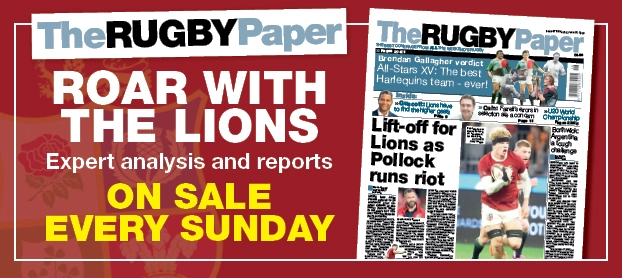













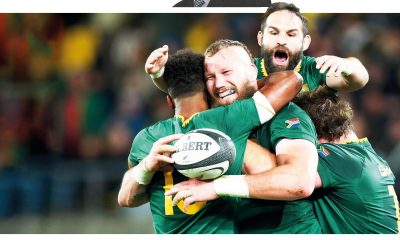

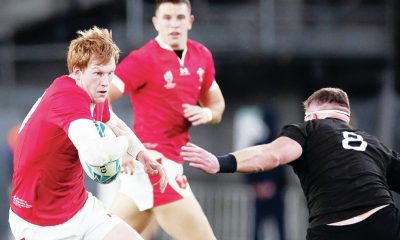

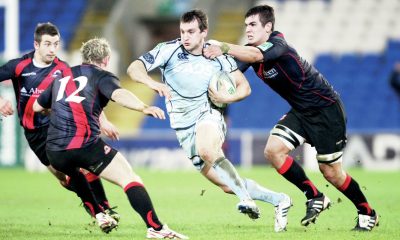

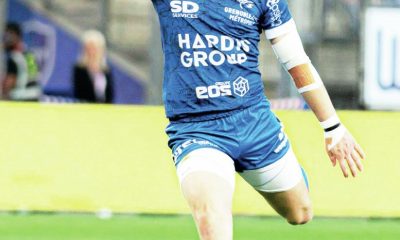



You must be logged in to post a comment Login